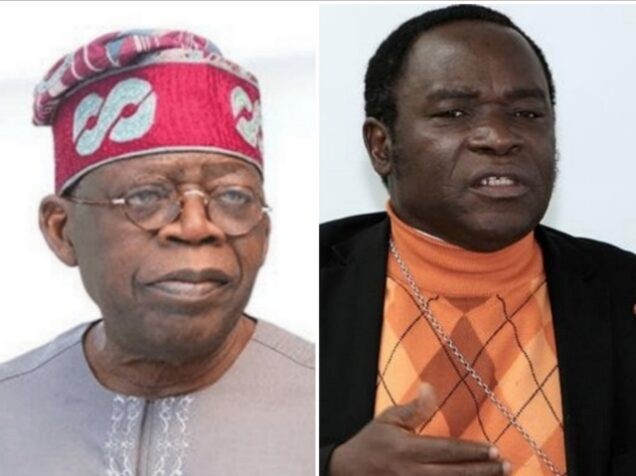Catholic Bishop of Sokoto Diocese, Matthew Hassan Kukah, delivered a passionate Easter message in 2025, appealing to President Bola Tinubu to take urgent action to free Nigerians from what he called a “cross of evil”—a symbolic expression of the nation’s deepening insecurity and worsening economic crisis.
In his message titled “Mr President: Please Bring Us Down from This Cross,” Kukah painted a bleak image of a country overwhelmed by unprecedented violence and hardship. “Our nation is bleeding from a scale of cruelty and brutality never seen in its history,” he said.
The bishop lamented the daily reality of kidnappings, describing the cruel conditions victims are subjected to. “A shadow of death lingers from the north to the south. There’s hardly a family, household, or community untouched by this wave of violence,” Kukah noted.
He warned that Nigeria is on the verge of collapse, likening the state of the nation to a “giant national morgue.” His plea to the president was clear: “Act with urgency and deliver us from this burden of evil.”
Although Kukah acknowledged that President Tinubu inherited many of the country’s challenges, he emphasized the responsibility of leadership. “For too long, Nigerians have been trapped on this cross of suffering and despair,” he said. “Mr. President, free us from the grip of darkness and bring hope back to our nation.”
He expressed concern about the growing distrust in government, fueled by escalating insecurity and economic decline. “Frustration now runs through every layer of society,” Kukah stated. “The government and its security forces often appear powerless, merely watching as death spreads across the country.”
Raising critical questions, Kukah wondered if the prolonged insecurity is due to incompetence or something more alarming. “Are we being offered as sacrifices to unknown powers?” he asked. “Is this the result of weak security systems, or are some in leadership benefitting from fueling the chaos?”
Turning to economic issues, Kukah condemned the impact of the fuel subsidy removal, saying it has led to widespread hunger and illness. While acknowledging the need for reform, he criticized the reliance on temporary relief. “Distributing palliatives degrades the dignity of our people,” he said. “Food security must be recognized as a basic human right.”
He also warned about the consequences of past political actions, where some leaders reportedly brought in armed groups to secure power—an act that now threatens to unravel the nation’s foundation. “Bandits have become embedded in every corner of society, tearing apart the bonds that hold our communities together,” Kukah warned.



